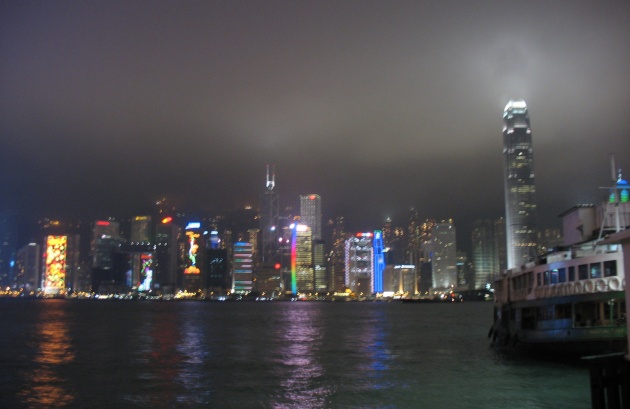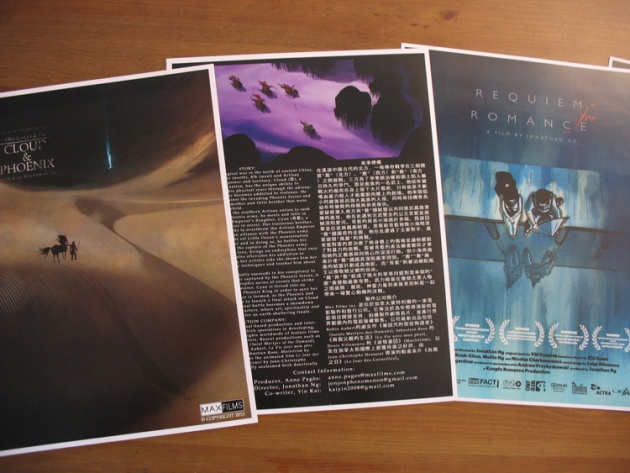I'm currently touring through Germany and have lots to tell about the trip. But here's the rest of what happened in Hong Kong.
Hong Kong Film Development Fund
On day 2, we met with Wellington Fung head of the Hong Kong Film Development Fund to see if there was any way for a Canadian production to access this fund in partnership with a Hong Kong co-producer. In our case, this fund will not work, since it has a low budget cap and is really only designed to support local Hong Kong based production companies. However, Wellington was very impressed with our project and encouraged us to aim for private investors in Hong Kong. He explained that the low taxation in Hong Kong doesn't allow for very much public funds for the film industry. He suggested that it was better to look for private equity film financing avenues. We took the opportunity to also request ways to contact A-list Hong Kong actors for potential voice work on the Chinese language version.

He referred us to the Hong Kong Motion Picture Industry Association rep, Brian Chung. Through Brian we were able to get the official contact information for Andy Lau and Donnie Yen. Andy Lau has been known in the past to invest in and support independent films. And obviously Donnie Yen's martial arts street cred is through the roof.
From Book to Screen
We attended a morning panel on adapting novels for film. The panel consisted of mostly novelists who spoke of their experiences having their books adapted for the big screen. Here are a few great quotes from the talk:
"Think of the Screenplay as a 92-pound weakling. Think of the Studio as an entire football team, and they just keep pounding and pounding against the Screenplay. They just keep pounding him into the ground and beating him up
and if the screenplay can even sort of remotely look like what it was before it started the fight, they'll say 'hey look! It's tough.' - Michael Tolkin
In reference to a comment about how hard the production process was for Life of Pi, and how there were several different directors that were kicked off the project before Ang Lee, and the marketing challenges of having an unknown Indian boy playing the lead role, Michael Tolkin said: "Every single movie, is a movie that, at some point, NOBODY wanted to make."
Indian filmmaker Chetan Bhagat likened filmmakers to painters with very, very expensive brushes and canvases. "Even if you are the most talented painter in the world, if you have really expensive brushes… Your painting has to at least recover the cost of the brush or else nobody's going to let you paint anymore."

Powerful Producers
We met with an influential American producer with a lot of experience in the film and entertainment industry within the Chinese market, Peter Loehr, (Spicy Love Soup, The Karate Kid, 2009) who gave us an rundown of who to meet, and how to figure out who to trust. It turns out that Chinese co-producers are starting to look for equity in global distribution revenues as opposed to just going for the rights to their domestic revenues.
We also met with an experienced Chinese producer, named Julia (I'll only give her first name here), who had worked for Jet Li and Michelle Yeow. She gave us some specific numbers to think about for successful distribution in China. The initial investment must triple in box office profits in order to make it worth it because theatrical, distribution, and investment each take one third of the profits.
Here's a link to the Canadian Pavillion at the Hong Kong Filmart.




